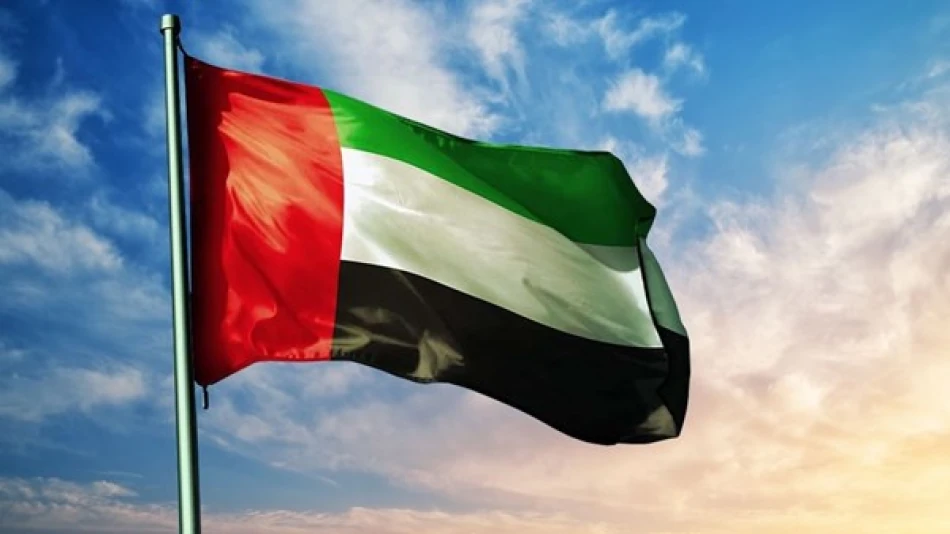
UAE Celebrates Emirati Women's Day: Empowering the Nation's Trailblazers
UAE's Five-Decade Blueprint for Women's Empowerment Sets New Global Standards
The UAE celebrates Emirati Women's Day on August 28th under the theme "Hand in Hand, We Celebrate the Fifty," marking half a century since the establishment of the General Women's Union. This milestone showcases how systematic government investment in women's capabilities has transformed the UAE into a global leader in gender equality, with women now holding 50% of Federal National Council seats and controlling over 60 billion dirhams in business investments.
The Architect Behind the Movement
Her Highness Sheika Fatima bint Mubarak, known as the "Mother of the Emirates," stands as the pioneering force behind the UAE's women's empowerment strategy. As President of the General Women's Union and Supreme Chairwoman of the Family Development Foundation, she has crafted a unique approach that balances modernization with cultural authenticity—a model that many developing nations struggle to achieve.
The movement began strategically in 1973 with the Abu Dhabi Women's Renaissance Society, expanding systematically across all emirates before consolidating under the General Women's Union in 1975. This institutional approach created the infrastructure necessary for sustained progress rather than sporadic initiatives.
Measurable Results That Outpace Regional Competitors
Political and Economic Leadership
The UAE's achievements in women's representation surpass many Western democracies. With women comprising 26% of the cabinet—leading critical portfolios including education, climate change, and community empowerment—the country demonstrates that gender diversity in leadership translates to comprehensive policy coverage. The 71% representation of women among Emirati workers in both government and private sectors indicates deep structural integration rather than token participation.
Entrepreneurship and Innovation
More than 25,000 Emirati businesswomen control over 50,000 commercial licenses, representing a business ecosystem worth over 60 billion dirhams. This entrepreneurial density rivals established markets like Singapore and positions the UAE as a regional hub for women-led innovation. The fact that 46% of STEM graduates are women—compared to roughly 35% in the United States—suggests the UAE has cracked the code on encouraging women in technical fields.
Global Recognition and Competitive Advantage
The UAE's systematic approach has earned first place regionally in the World Economic Forum's 2025 Gender Gap Report and 13th place globally in the UN Development Programme's Gender Equality Index. These rankings translate into tangible economic advantages: countries with higher gender equality typically see GDP increases of 15-25% when women's workforce participation reaches optimal levels.
The UAE's 82.5 out of 100 score in the World Bank's Women, Business and Law report places it ahead of several European nations, demonstrating that legislative frameworks can accelerate cultural change when properly implemented.
Strategic Policy Framework: The 2023-2031 Blueprint
The National Policy for Women's Empowerment 2023-2031 represents a data-driven approach to maintaining momentum. Unlike many national strategies that remain aspirational, this policy builds on measurable successes and addresses specific gaps. The focus on equal pay—codified in Federal Decree-Law No. 27 of 2018—creates economic incentives that align business interests with social progress.
Constitutional Guarantees vs. Cultural Evolution
The UAE's constitution ensures gender equality in rights, healthcare, education, and employment opportunities. However, the real innovation lies in implementation mechanisms: the Emirates Gender Balance Council and institutional support systems that translate legal rights into practical opportunities. This institutional approach explains why the UAE achieves results where other countries with similar laws struggle.
International Influence and Soft Power Strategy
The UAE leverages its domestic success for regional influence through initiatives like the Sheika Fatima bint Mubarak Initiative for Women's Empowerment in Peace and Security, which has trained over 500 women globally. The Arab Observatory for Women's Economic Development, launched at the 2023 Leaders Summit, positions the UAE as the convening power for women's economic empowerment across the Arab world.
This strategy creates diplomatic advantages while expanding market opportunities for Emirati businesswomen throughout the region and Africa, where the UAE maintains significant economic interests.
Investment Implications and Future Trajectory
For international investors, the UAE's women's empowerment success signals several opportunities. The concentration of women in leadership positions suggests more diverse decision-making processes, which research correlates with better risk management and innovation outcomes. The 55% women's workforce participation rate indicates a fully utilized talent pool, contributing to the UAE's competitive advantage in knowledge-based industries.
The 50% women's representation in the space sector particularly highlights the UAE's commitment to high-value, future-oriented industries where gender diversity drives innovation. As the UAE positions itself for the post-oil economy, this human capital advantage becomes increasingly valuable for attracting international partnerships and investments in technology, healthcare, and sustainable development sectors.
Most Viewed News

 Layla Al Mansoori
Layla Al Mansoori






